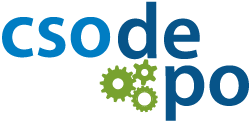Invitation to Writing Workshop funded by the British Academy
The project is part of a commitment to global justice, inclusive governance and the rule of law. It stems from the realisation that the field largely represents “northern” research production, that uses liberal peace as a metric to assess peace and security. Yet, there is a bulk of alternative approaches to governance, the rule of law and human rights. While some of that literature has found it ways on the international scene via publications in English or because their authors have moved to westernbased institutions, others are not easily accessible. One of the many reasons is that scholars are based in countries that are insecure, limiting opportunities to benefit from international academic engagment and publishing options. Yet, Southern-based scholars have a first-hand experience of insecurity and conflict. They are well placed to reform the current status quo in academic literature, if given the relevant support.
AIMS
The focus of this project funded by the British Academy is consequently two-fold:
1) To support a new way of writing, ensuring that “southern” academic literature that promotes new approaches, concepts and theories on liberal peace acquires an international readership;
2) To guide and support grant applications to improve UK and ODA working collaboration.
The online workshops will be used to discuss submitted drafts and prepare them for publication, while enhancing writing skills. The workshops will also be used to help participants hone their grant application skills, learning to work collaboratively. Participants will have the opportunity to discuss writing and grant mechanics with journal editors and funding bodies’ representatives, acquiring transferrable skills.
PARTICIPANTS
There will be a maximum of 12 early-career researchers selected from the field of peace and security. Participants will be located in the following countries: Iran, Afghanistan, Armenia, Georgia, Sudan, Ethiopia, Libya, Yemen, West Bank, Iraq, Syria and Qatar. Early-career researchers holding the citizenship of Iraq, Libya, Syria and Yemen can be based in another ODA country. We will welcome early-career researchers within 5 years of completion of a PhD or within 5 years of integrating academia after being a practitioner.
There are two deadlines:
One for the submission of 500 words abstract + a 2 pages CV (with publications, if any).
Another for submission between 3,500 and 6,000 words draft paper (we will also invite or select 2 to 3 additional participants without a draft)
We welcome abstract on the following main research themes (and beyond):
- Peace and Security
- Conflict
- Governance
- Rule of law
- Human rights
- Defence
- National security
- Gender
- Cyber security…
The focus is inter-disciplinary, meaning we welcome abstracts from politics, law, economics, religious studies, anthropology, history, geography…
The abstract and further communications are to be sent to: [email protected]
Workshops will take place in English
WORKSHOPS
There will be 3 workshops, organised regionally:
Workshop 1: Iran, Afghanistan, Armenia and Georgia.
Deadline for abstract submission: 15 July 2021
Dates of the workshop: 27-28 September 2021
Workshop 2: Sudan, Ethiopia, Libya and Yemen
Deadline for abstract submission: 15 October 2021
Dates of the workshop: 06-07 December 2021 Date of the workshop
Workshop 3: West Bank, Iraq, Syria and Qatar
Deadline for abstract submission: 15 December 2021
Dates of the workshop: 14-15 February 2022
OUTCOMES
The outcome will be publications in English, in a special issue of Journal of the British Academy and other outlets. A reflection piece will be published at the end of the process examining challenges and opportunities for academics when decolonising the field.
THE TEAM
The Team is made up of:
Dr Anicée Van Engeland, Cranfield University, United Kingdom
Dr Sherine El Taraboulsi-McCarthy, Overseas Development Institute, United Kingdom
Dr Yonas Adaye, Institute for Peace and Security Studies, Addis Ababa University, Ethiopia
Dr Tareq Ashour, Birzeit University, Palestinian Authority
Dr Munzul Assal, Peace Research Institute, Khartoum University, Sudan
Dr Katherine Brown, University of Birmingham, United Kingdom
Dr Swati Parashar, University of Gothenburg, Germany
